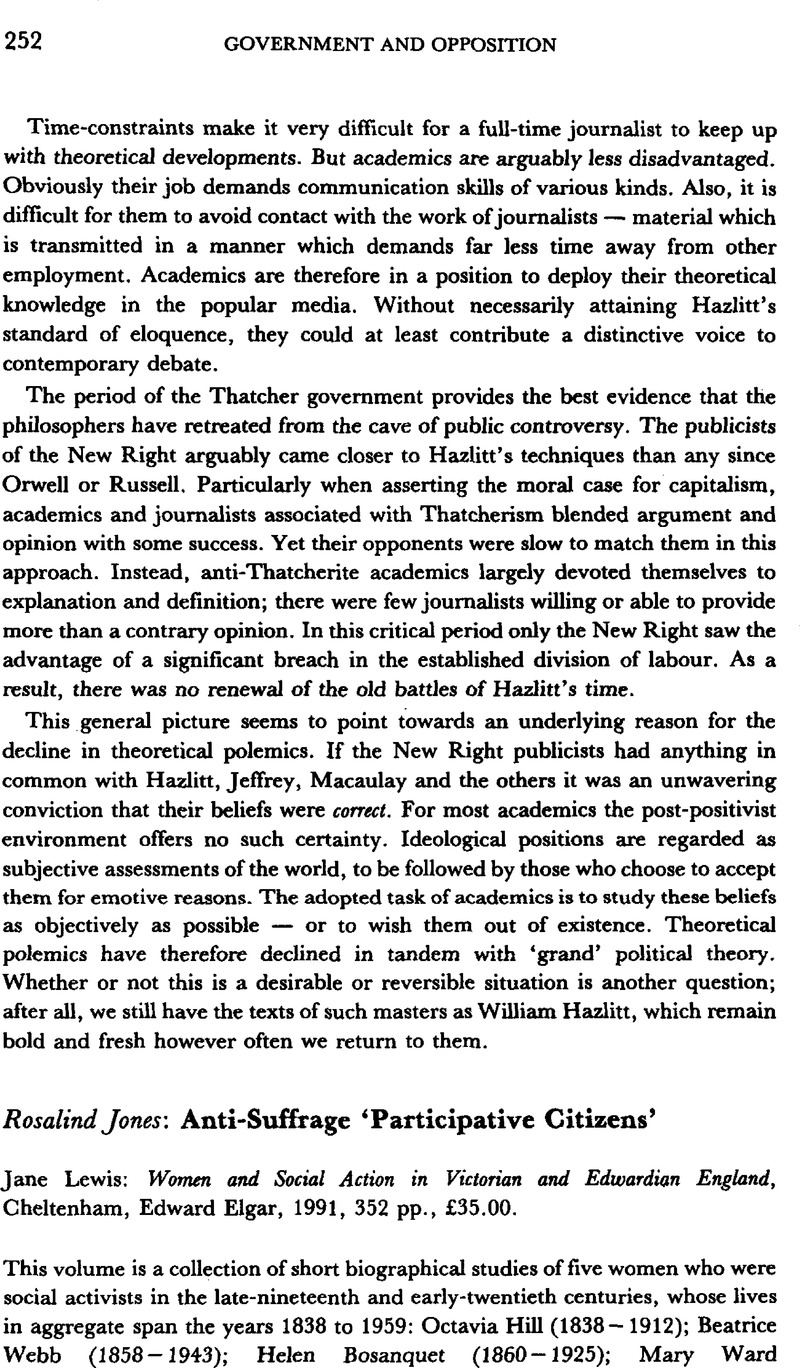No CrossRef data available.
Article contents
Anti-Suffrage ‘Participative Citizens’ - Jane Lewis: Women and Social Action in Victorian and Edwardian England Cheltenham, Edward Elgar, 1991, 352 pp., £35.00.
Published online by Cambridge University Press: 28 March 2014
Abstract

- Type
- Reviews
- Information
- Copyright
- Copyright © Government and Opposition Ltd 1992
References
1 Despite its daunting title, the chapter on the militant suffragettes which is recommended in the notes: ‘Male Space and Women’s Bodies: The Suffragette Movement’, ch. 7 of Martha Vicinus, Independent Women. Work and Community for Single Women 1850–1920, Virago, 1985, is a well-balanced account of the movement.
2 Beatrice Webb, ‘Why I became a Socialist’, My Apprenticeship, 1926, quoted in Hollis, Patricia, Women in Public. The Women’s Movement 1850–1900, London, 1979, p. 329.Google Scholar
3 As a member of the Royal Commission on the Poor Law 1905–09, she took the view that the problem of poverty depended ‘not on the machinery which the commission may recommend… but on the number of faithful men and women whom England can secure and inspire as faithful servants’.
4 As early as 1855, F. D. Maurice had suggested that if ladies would visit the poor their mere presence in the neighbourhood would help secure moral improvement.
5 Stedman-Jones, Gareth, Outcast London, Oxford University Press, 1971, p. 193.Google Scholar
6 Octavia Hill disliked the term and preferred F. D. Maurice’s ‘fellow-worker’
7 There is a detailed comparison of the ideas of Bernard Bosanquet (responsible for the majority report on the Poor Law 1909) and of Beatrice Webb who constructed the minority report in Vincent, A. W., ‘The Poor Law Reports of 1909 and the Social Theory of the Charity Organization Society’, Victorian Studies, Vol. 27, Spring 1984, pp. 343–63.Google Scholar
8 Jane Lewis comments that Mary Ward would have been horrified to have witnessed the long-term effects of war on social mores… chaperonage did not revive and, from middle-class women’s diaries, it would Seem that one of the greatest effects of the war was on sexual mores and on the nature of relationships between men and women’ (p. 253). (My italics.)




